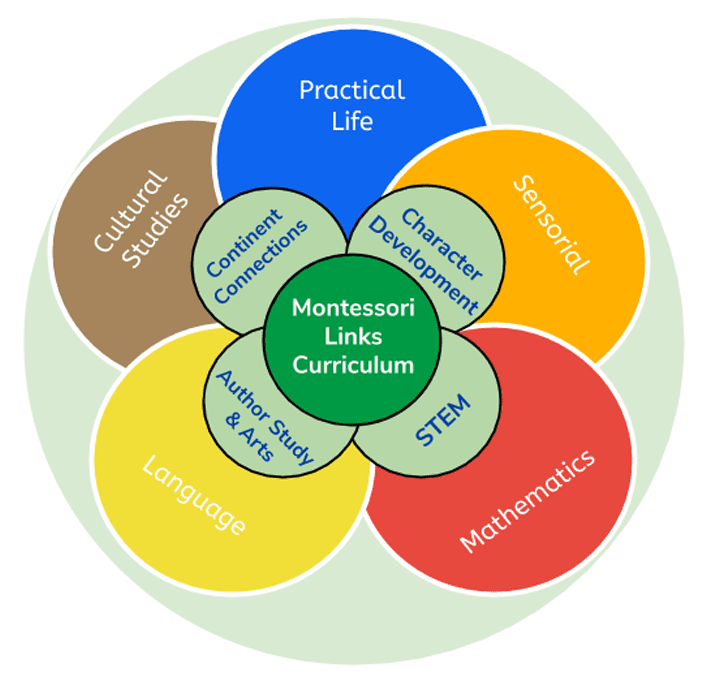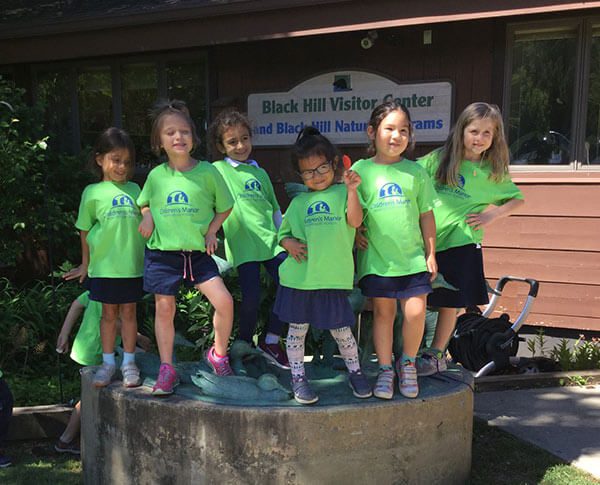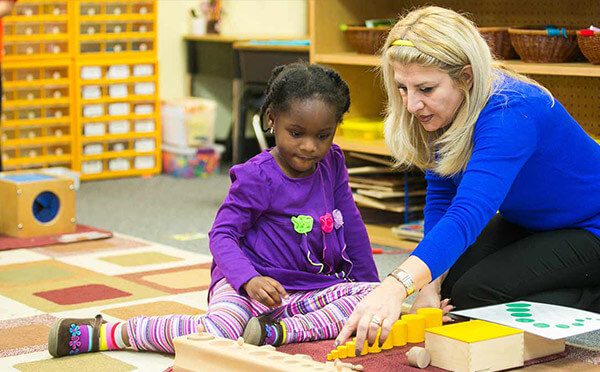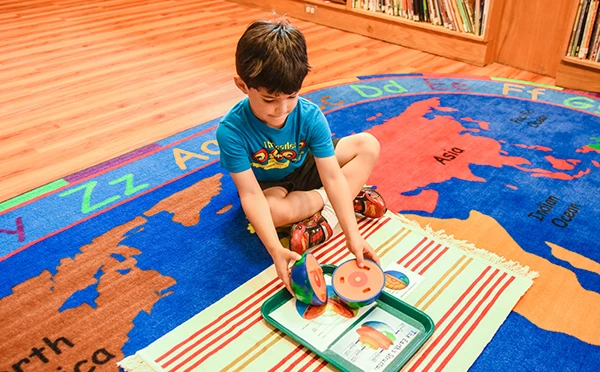Our Curriculum



At Children’s Manor and Children’s Magnet, we focus on the development of the whole child, and over the last 30 years have built a curriculum that balances your child’s social & emotional, cognitive, physical and academic development. Our mission is to prepare your child to excel in a global society by providing an academically rigorous, engaging, and supportive learning environment.
Our Unique Curriculum

Practical life
Practical life
Practical life includes life skills to help develop independence, coordination, concentration, self-control, self-awareness, confidence and include:
- Care of Self (food preparation, dressing, washing),
- Care of Environment (cleaning, gardening, care of pets, environmentalism),
- Grace and Courtesy (greetings, manners, social interactions),
- Control of Movement (refining movements, walking the line, moving quietly)
Sensorial
Sensorial
Sensorial activities allows the child to refine each of their senses: Sight, Touch, Smell, Taste, Sound and kinestistic (physical). Includes the manipulation of specifically designed materials that isolate qualities. Refines fine motor skills, visual and auditory senses and develops coordination and the ability to order and classify.Cultural Studies
Cultural Studies
Cultural Studies allows the child to explore the natural world around them and includes studying Geography (continents, landforms, earth layers, solar system), Zoology (classification, physiology of animals), Botany (ecology, classification, physiology of plants), History (time lines, using a calendar) and Science.Mathematics
Mathematics
Mathematics is developed with the use of concrete learning materials. The sensorial area is the preparation for mathematics. Hands-on materials are used such as number rods, sandpaper numbers, number boards, spindle box, number tiles, beads, and games. Each exercise builds upon another and the child gradually moves to from concrete to abstract areas such as place value, addition, subtraction, multiplication, and fractions.Language
Language
Language is based on phonetic awareness. Children work through specific hands-on and tactile language materials such as the sandpaper letters to the moveable alphabet. Language is not an isolated topic but runs through the curriculum. The spoken language is the foundation for writing and then reading.Montessori Links Curriculum
Our Montessori Links curriculum integrates the five core Montessori learning areas with an interdisciplinary learning experience in Character Development, STEM, Continent Connections, and Author Study & Arts.
For each month in the academic year, the Montessori Links curriculum is developed around a Theme and a Continent Study that incorporates work across the five Montessori learning areas. These monthly themes integrate age-appropriate activities and materials into the daily routine, allowing children to interact with complex topics with appropriate interconnectivity and repetition. This prepares children with a more conceptual understanding critical for their future success.
A Glimpse Into Your Child’s Learning Journey With the Montessori Links Curriculum
February is a time we focus on the theme of New Beginnings and the Continent of Asia. All students have discussions about various character traits such as how to be caring, as well as studying influential Black Leaders. Within the language learning ara they study an author related to Asia and relevant works of poetry and folktales are chosen. The life and work of artists and musicians are also similarly experienced through videos and interactive demonstrations, while time is spent studying the culture and geography of countries in Asia.
Below is a sample of a week:
Monday
Happy Birthday, Rosa Parks!
Today, we emphasize that doing the right thing is not always easy, but that we should exemplify Rosa Parks’ strength and bravery, even when faced with adversity. Through storytelling and engaging discussions and activities, our students will be encouraged to explore the values of fairness and equality, and make their own commitment to positively contributing to the world around them!
Tuesday
East to West
We explore the interconnectedness of our world through the lens of food and other products from Asia that have found their way into our lives in the United States. From the savory spices of Indian curries to the delicate balance of umami in Japanese dishes, countries have adopted various flavors from all across Asia.
Wednesday
Party, Party, Party Time!
Students will be embarking on an exploration of Asian holidays and festivals! From the playful traditions of Setsubun in Japan to the vibrant lantern festivals of Chiang Mai in Thailand, our students will be immersed in a sensory-rich journey. From festive songs to delicious treats and whimsical sayings, celebrating together is the focus of the day!
Thursday
Whispers of Freedom
Harriet Tubman’s remarkable journey offers invaluable lessons in determination, empathy, and social justice! We’ll learn about her guidance and how she played a crucial role on the Underground Railroad. Students will be encouraged to reflect on their own capacities for leadership and the ways in which they can contribute positively to their communities.
Friday
Roaring into a New Year
The celebration of Chinese New Year begins tomorrow. This festive celebration focuses on vibrant colors, unique traditions, and joyful energy. Students will create their own crafts that represent the holiday and learn about traditional Chinese customs, embracing the ideas of renewal, setting goals, and sharing joy with family and friends!
Enrichment Programs
A unique aspect of our curriculum is the incorporation of Enrichment Programs into the schedule as part of your child’s education.
These include:
Spanish
Technology
Library Media
Music
Yoga
Reading Readiness
Art

Extracurricular Programs,
Clubs & Field Trips
Learning experiences beyond the classroom are highly beneficial for children of all ages and are an integral part of our curriculum.

Measuring Your Child's Progress
To share your child’s progress, we hold parent teacher conferences at least three times a year.

STEM Education At CMMS
Montessori teachers have a jump-start to STEM (Science, Technology, Engineering & Mathematics) education as compared to their conventional counterparts because student engage in a hands-on learning environment that is inherent in a Montessori classroom.
At Children’s Manor and Children’s Magnet Montessori, we provide an academically rigorous, engaging, and supportive learning environment that allows for innovation, collaboration, and hands-on learning and problem solving. Students learn the fundamental rules of mathematics and science through the discovery of natural laws by working with didactic materials and problem solving with peers.
